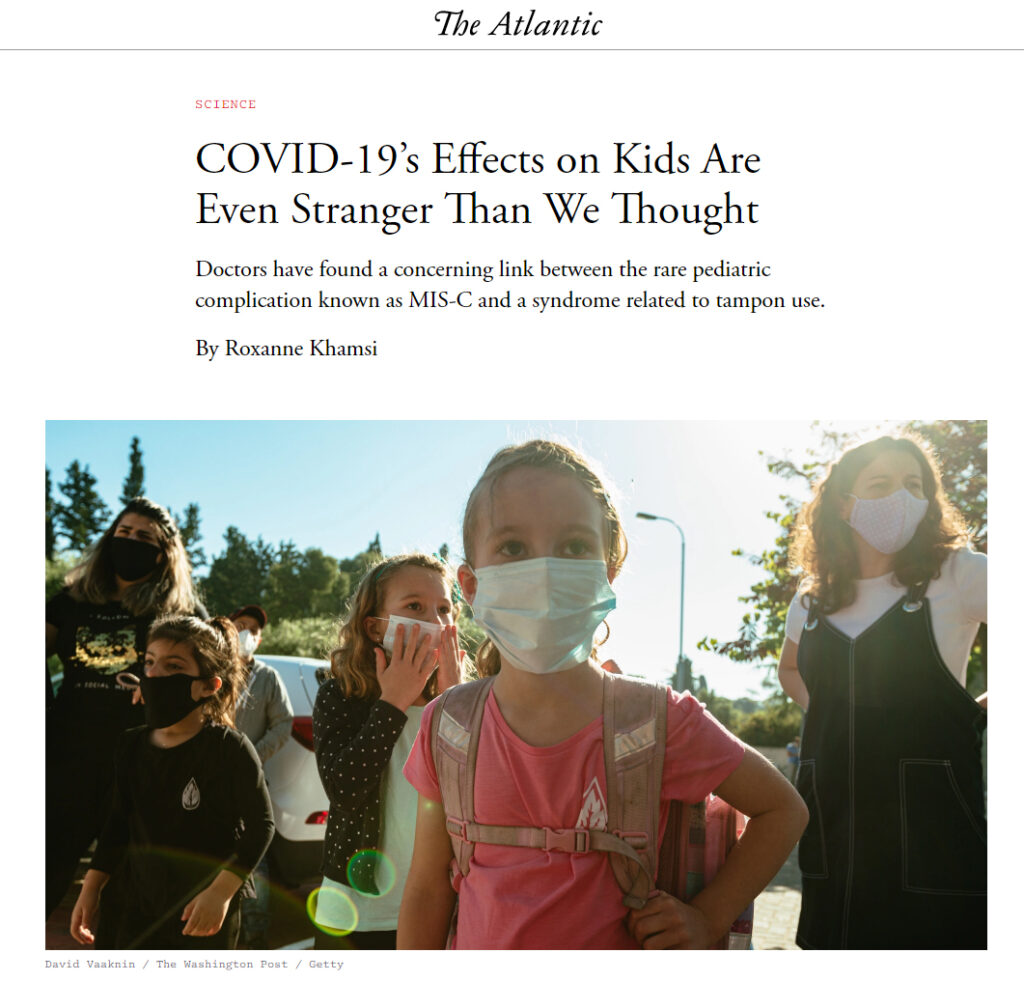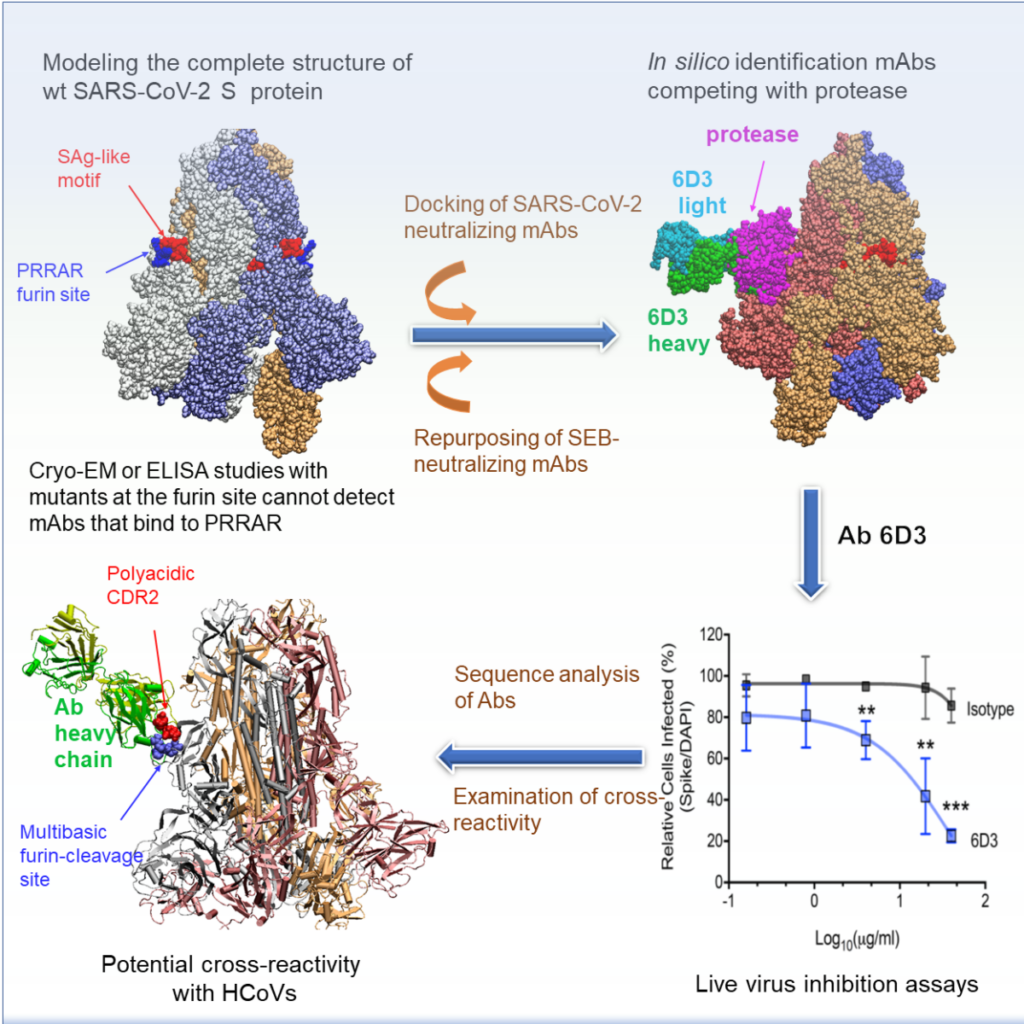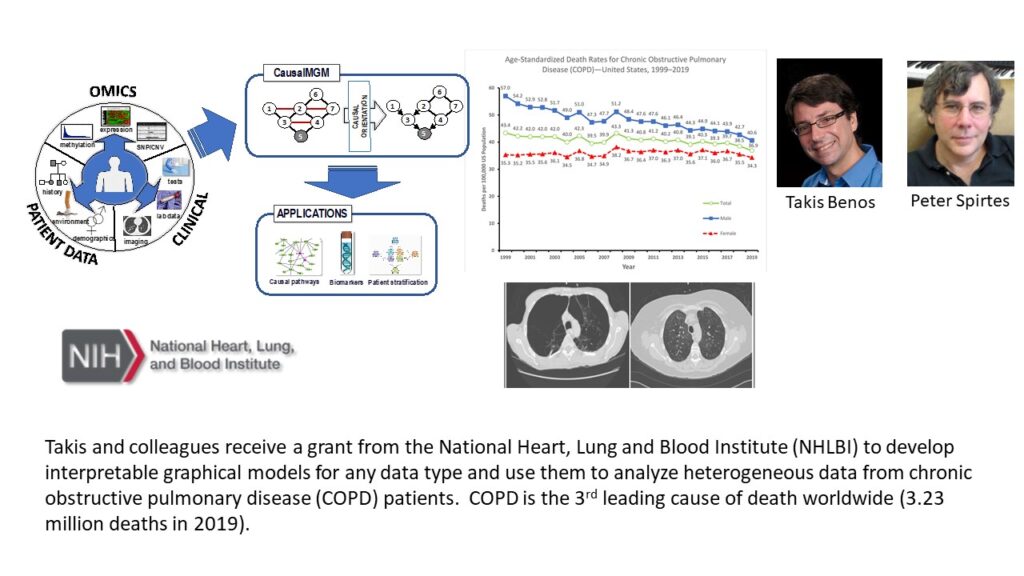Article in The Atlantic highlights the work of the Bahar lab on MIS-C caused by SARS-CoV-2
This article highlights the work of the Bahar lab in collaboration with the Arditi lab on the molecular origin of multisystem inflammatory syndrome in children (MIS-C) observed in Covid-19 patients. The article provides an extensive perspective, including interviews with Bahar, Arditi, and other scientists.
The Bahar lab discovered a superantigenic segment on the spike glycoprotein (Cheng et al., PNAS 2020), potentially implicated in triggering MIS-C as well as the cytokine storm and hyperinflammatory immune responses observed in severe Covid-19 cases (Rivas et al J Allergy & Clinical Immunol 2021). The TCR repertoire observed in in severely infected patients (Porritt et al, J Clinical Investigation, 2021) supported the occurrence of such a superantigenic reaction. The discovery of this superantigenic segment, which shares sequence and structure similarities with Staphyloccocal enterotoxin B led to the identification of a monoclonal antibody (6D3), which proved to reduce SARS-CoV-2 infection in experiments conducted at Cedars Sinai (UCLA) (Cheng et al., Structure 2021).
Benos Lab awarded NIH R01 Grants
We are pleased to announce that Dr. Takis Benos and the Benos lab have been awarded an NIH R01 grant entitled “COPD subtypes and early prediction using integrative probabilistic graphical models”. This is a 4-year award that will which is expected to provide $3.23 million in total support to their research aiming to identify subtypes of chronic obstructive pulmonary disease (COPD).
COPD is the 3rd leading cause of death worldwide. In 2019 it was responsible for 3.23 million deaths. In USA, it kills ~37 people / 100,000 per year. One of the problems with this disease is that it is heterogeneous and identifying subtypes can help improve disease management and treatment.
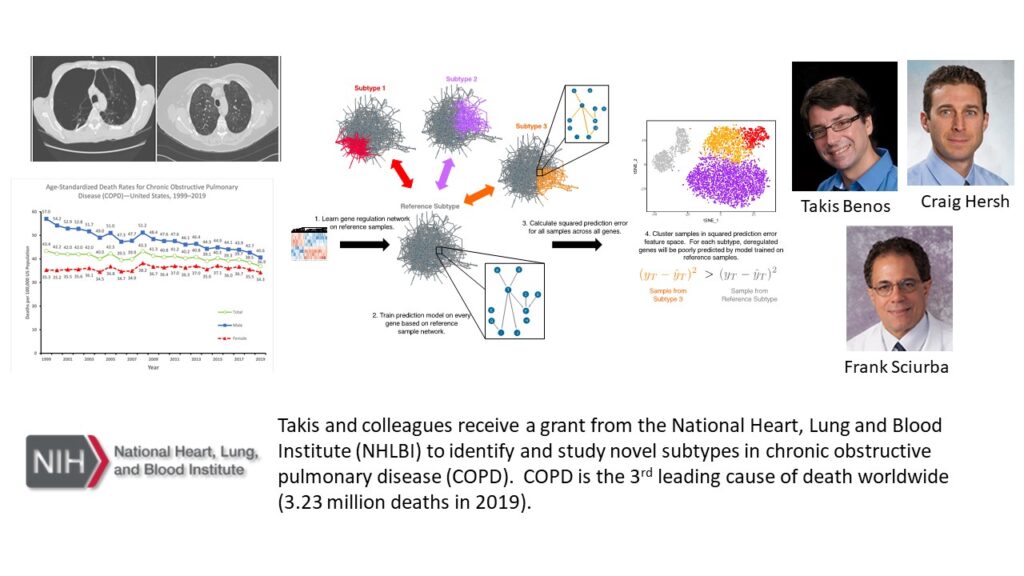 And additional congratulations to Dr. Takis Benos and his colleague Dr. Peter Spirtes of the Carnegie Mellon University Department of Philosophy has been awarded an RO1 entitled “Interpretable graphical models for large multi-modal COPD data” which focuses on developing causal graphical models for any-type of data and apply them to address important questions in COPD research.
And additional congratulations to Dr. Takis Benos and his colleague Dr. Peter Spirtes of the Carnegie Mellon University Department of Philosophy has been awarded an RO1 entitled “Interpretable graphical models for large multi-modal COPD data” which focuses on developing causal graphical models for any-type of data and apply them to address important questions in COPD research.
Lee Lab Publishes in Science Advances
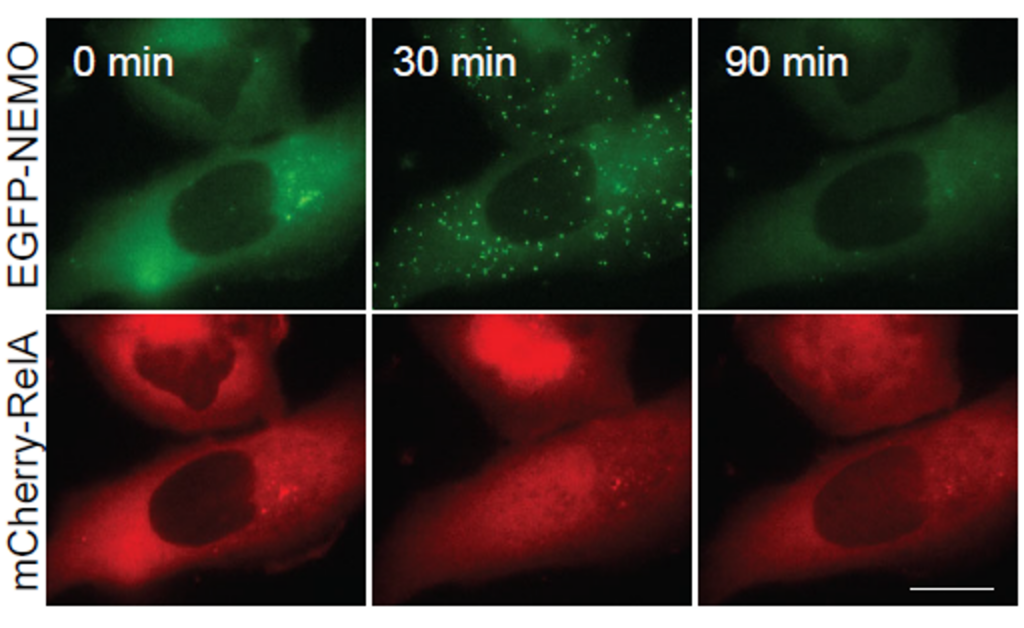 |
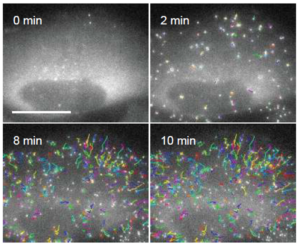 |
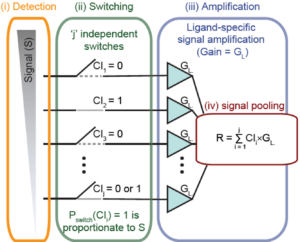 |
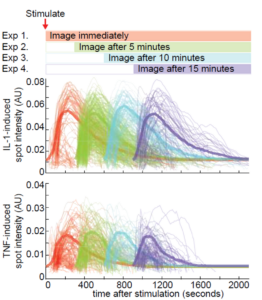 |
A myriad of inflammatory cytokines regulate signaling pathways to maintain cellular homeostasis. The IkB kinase (IKK) complex is an integration hub for cytokines that govern nuclear factor kB (NF-kB) signaling. In response to inflammation, IKK is activated through recruitment to receptor-associated protein assemblies. How and what information IKK complexes transmit about the milieu are open questions. In this paper, the Lee Lab track dynamics of IKK complexes and nuclear NF-kB to identify upstream signaling features that determine same-cell responses. Experiments and modeling of single complexes reveal their size, number, and timing relays cytokine-specific control over shared signaling mechanisms with feedback regulation that is independent of transcription. Their results provide evidence for variable-gain stochastic pooling, a noise-reducing motif that enables cytokine-specific regulation and parsimonious information transfer. They propose that emergent properties of stochastic pooling are general principles of receptor signaling that have evolved for constructive information transmission in noisy molecular environments.
Cruz JA*, Mokashi CS*, Kowalczyk GJ, Guo Y, Zhang Q, Gupta S, Schipper DL, Smeal SW, Lee REC. A variable-gain stochastic pooling motif mediates information transfer from receptor assemblies into NF-kB. Sci. Adv. 7, eabi9410 (2021)

